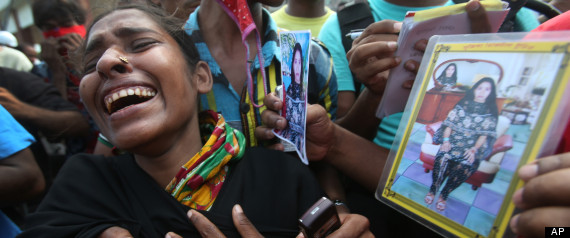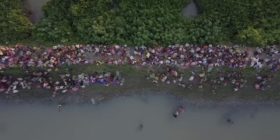DHAKA, Bangladesh — Rescuers found more bodies in the concrete debris of a collapsed garment factory building Thursday and authorities say it may take another five days to clear the rubble.
In addition to the 430 confirmed dead, police report that 149 people are still missing in what has become the worst disaster for Bangladesh’s $20 billion-a-year garment industry.
Maj. Gen. Chowdhury Hassan Suhrawardy, the commander of the area’s army garrison supervising the rescue work, dismissed reports that up to 1,000 people were missing and accusations from some relatives that authorities are hiding the bodies to keep the death toll low.
“Don’t listen to such rumors,” he told reporters.
A mass Muslim funeral was held Wednesday for 34 victims whose bodies were too battered or decomposed to be identified. Cemetery workers have dug several long rows of graves where scores more unidentified bodies are expected to be buried in the coming days.
Suhrawardy said Thursday that 20 bodies were recovered overnight, bringing the death toll to 430. Rescue workers believe more bodies are buried on the building’s ground level, and were using cranes and cutting machines to clear tons of rubble.
Five garment factories occupied upper floors of the eight-story Rana Plaza building that collapsed April 24, a day after huge cracks appeared in the building and police ordered an evacuation. The owner of the building is accused of telling tenants it was safe despite the order.
The disaster and a garment factory fire five months earlier that killed 112 people highlight the unsafe conditions plaguing Bangladesh’s garment industry, which supplies many global retailers.
Mohammed Sohel Rana is under arrest and expected to be charged with negligence, illegal construction and forcing workers to join work, which is punishable by a maximum of seven years in jail. Authorities have not said if more serious crimes will be added.
The Bangladesh High Court has ordered the government to confiscate Rana’s property and freeze the assets of the owners of the factories in Rana Plaza so the money can be used to pay the salaries of their workers.
Rana had permission to build five stories but added three more illegally. After the cracks appeared, a bank and some shops refused to open but factory managers told their workers to go back in. Hours later the building came down in a heap of concrete.
Among the garment makers in the building were Phantom Apparels, Phantom Tac, Ether Tex, New Wave Style and New Wave Bottoms.






Leave a reply